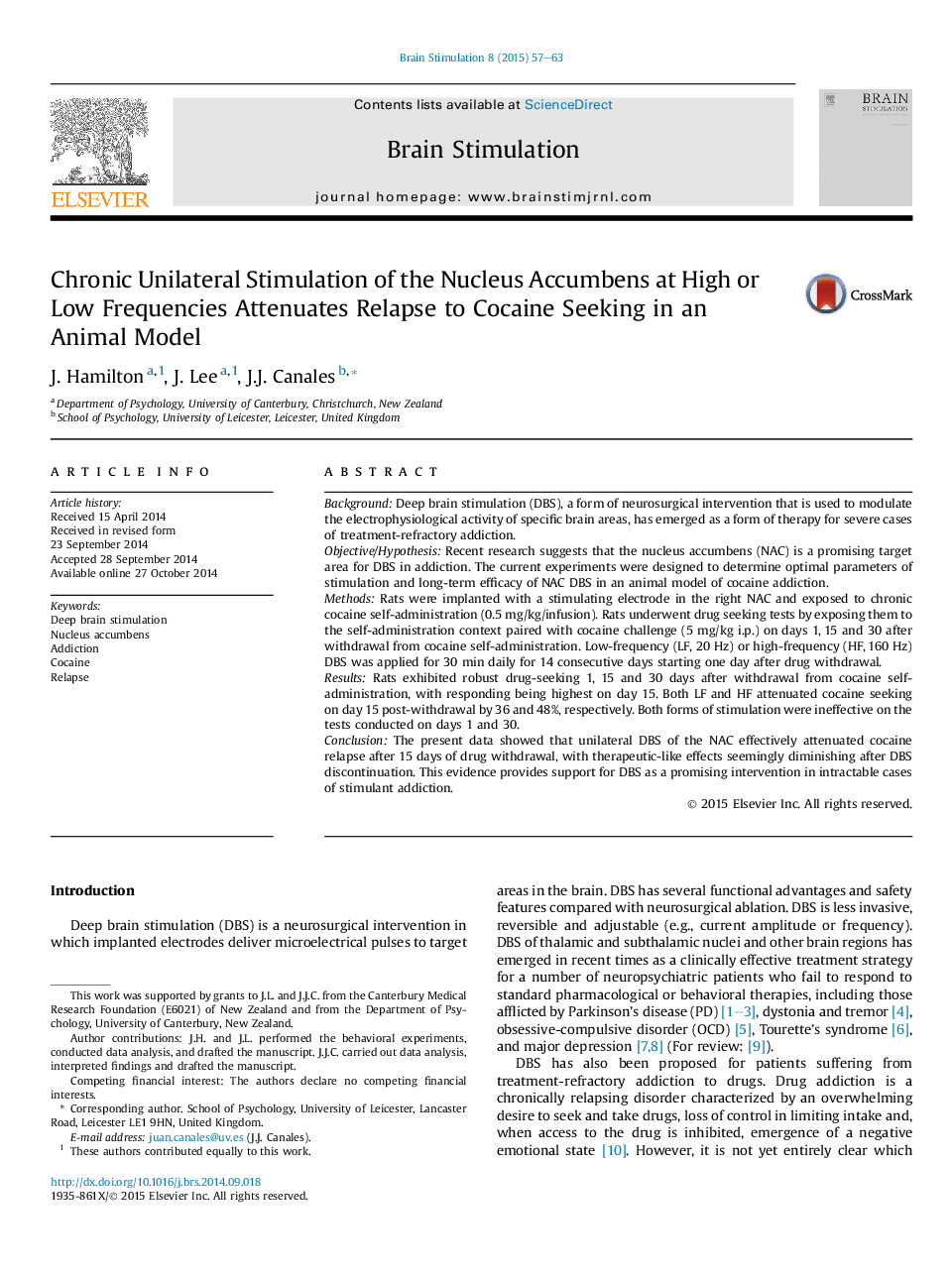| کد مقاله | کد نشریه | سال انتشار | مقاله انگلیسی | نسخه تمام متن |
|---|---|---|---|---|
| 3038747 | 1184668 | 2015 | 7 صفحه PDF | دانلود رایگان |
• Rats showed robust relapse after withdrawal from chronic cocaine self-administration.
• Unilateral stimulation of the nucleus accumbens attenuated relapse to drug-seeking.
• Both low-frequency and high-frequency stimulation reduced relapse.
BackgroundDeep brain stimulation (DBS), a form of neurosurgical intervention that is used to modulate the electrophysiological activity of specific brain areas, has emerged as a form of therapy for severe cases of treatment-refractory addiction.Objective/HypothesisRecent research suggests that the nucleus accumbens (NAC) is a promising target area for DBS in addiction. The current experiments were designed to determine optimal parameters of stimulation and long-term efficacy of NAC DBS in an animal model of cocaine addiction.MethodsRats were implanted with a stimulating electrode in the right NAC and exposed to chronic cocaine self-administration (0.5 mg/kg/infusion). Rats underwent drug seeking tests by exposing them to the self-administration context paired with cocaine challenge (5 mg/kg i.p.) on days 1, 15 and 30 after withdrawal from cocaine self-administration. Low-frequency (LF, 20 Hz) or high-frequency (HF, 160 Hz) DBS was applied for 30 min daily for 14 consecutive days starting one day after drug withdrawal.ResultsRats exhibited robust drug-seeking 1, 15 and 30 days after withdrawal from cocaine self-administration, with responding being highest on day 15. Both LF and HF attenuated cocaine seeking on day 15 post-withdrawal by 36 and 48%, respectively. Both forms of stimulation were ineffective on the tests conducted on days 1 and 30.ConclusionThe present data showed that unilateral DBS of the NAC effectively attenuated cocaine relapse after 15 days of drug withdrawal, with therapeutic-like effects seemingly diminishing after DBS discontinuation. This evidence provides support for DBS as a promising intervention in intractable cases of stimulant addiction.
Journal: Brain Stimulation - Volume 8, Issue 1, January–February 2015, Pages 57–63
